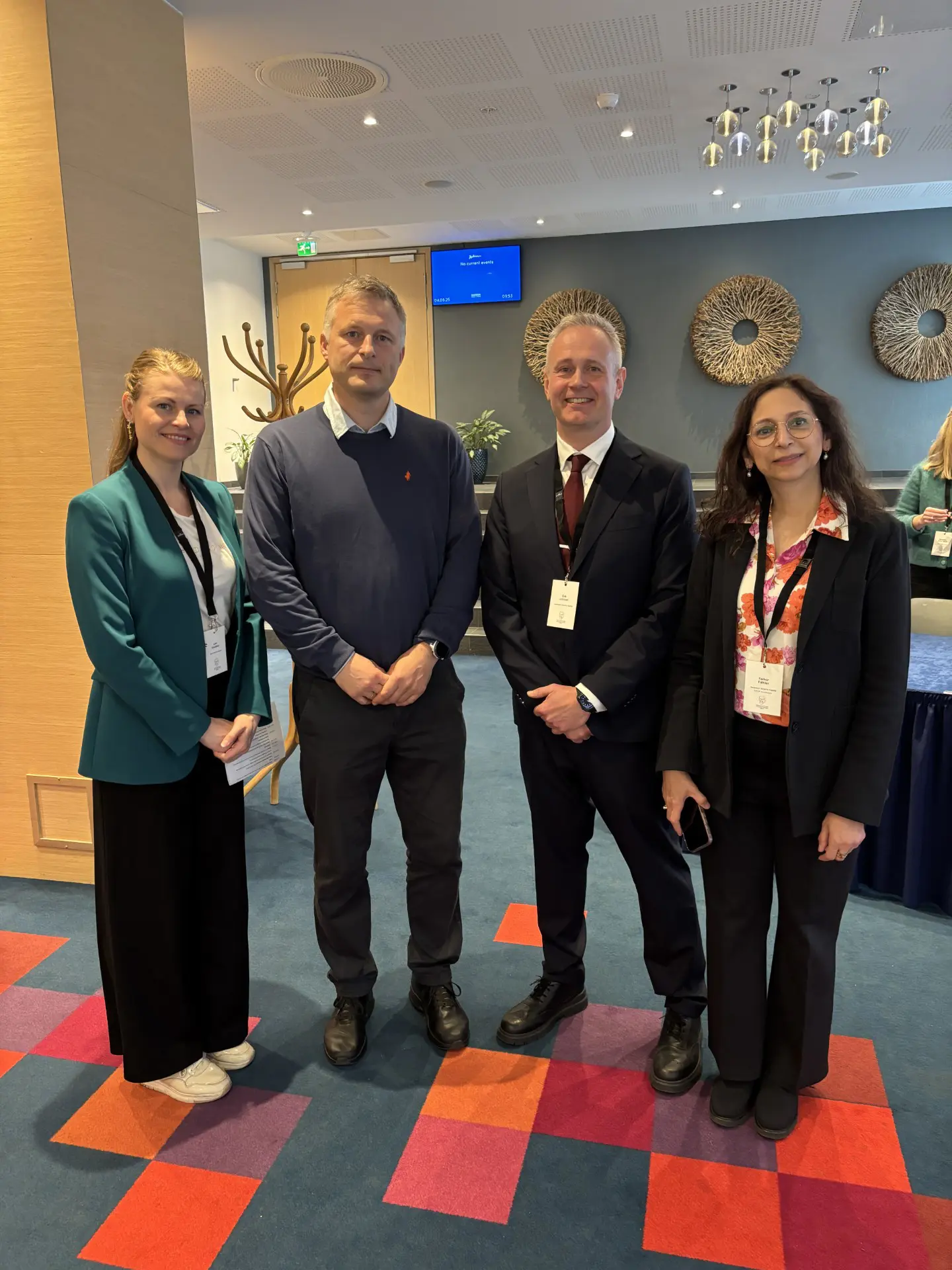Great success for MRCP 1st Annual Meeting in Bergen
The first annual meeting of the Mohn Research Center for Psychotic Disorders (MRCP) was held on June 4 at the Radisson Blu Royal Hotel in Bergen – and was a great success. The event brought together over 60 participants, with the aim of sharing new knowledge and promoting collaboration across disciplines to improve the treatment of people with psychotic disorders – a patient group that often has complex health challenges and significantly reduced life expectancy.
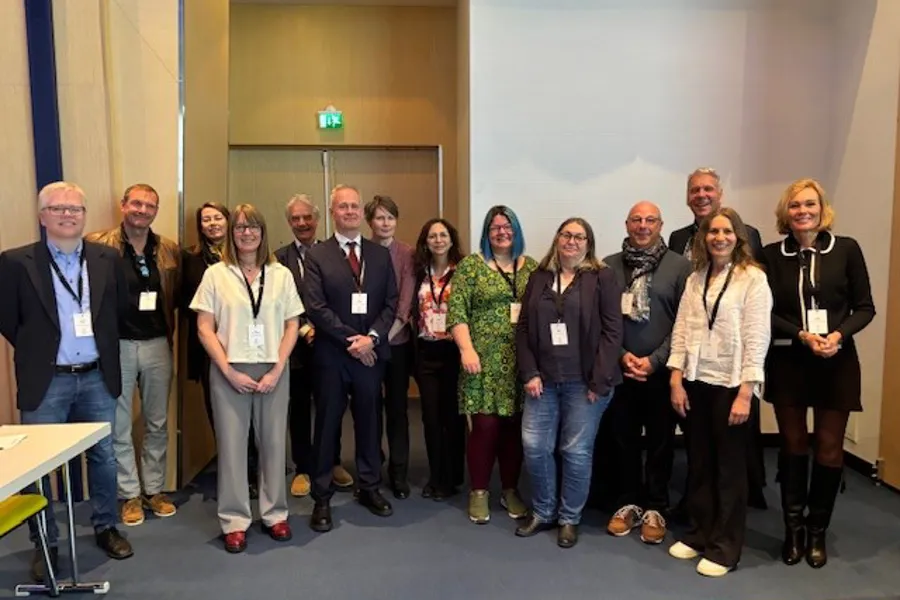
The conference opened with greetings from Nicholas Nunn the Director of the Trond Mohn Research Foundation,and followed by a welcome speech from Erik Johnsen, Head of MRCP. Johnsen referred to the centers' slogan: Everyone talks about the dramatic excess mortality from psychotic disorders, but few do anything about it - we want to change this.
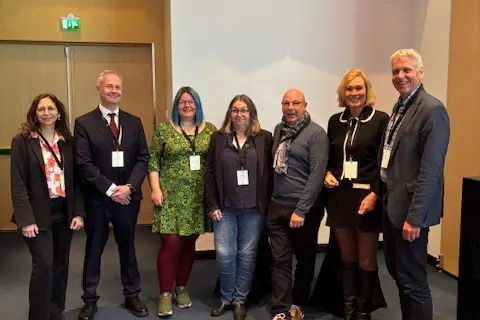
It is inspiring to see so many committed professionals and user voices from Psychosis Research with Experience (PEK) gathered in the same room. This shows that we are on the right track with MRCP’s interdisciplinary and patient-centered approach, said Erik Johnsen,
International keynote lecture
The keynote address was given by professor Iris Sommer from the University of Groningen, who presented results from the HAMLETT study – a groundbreaking study of antipsychotic medication tapering versus maintenance treatment in first-episode psychosis.
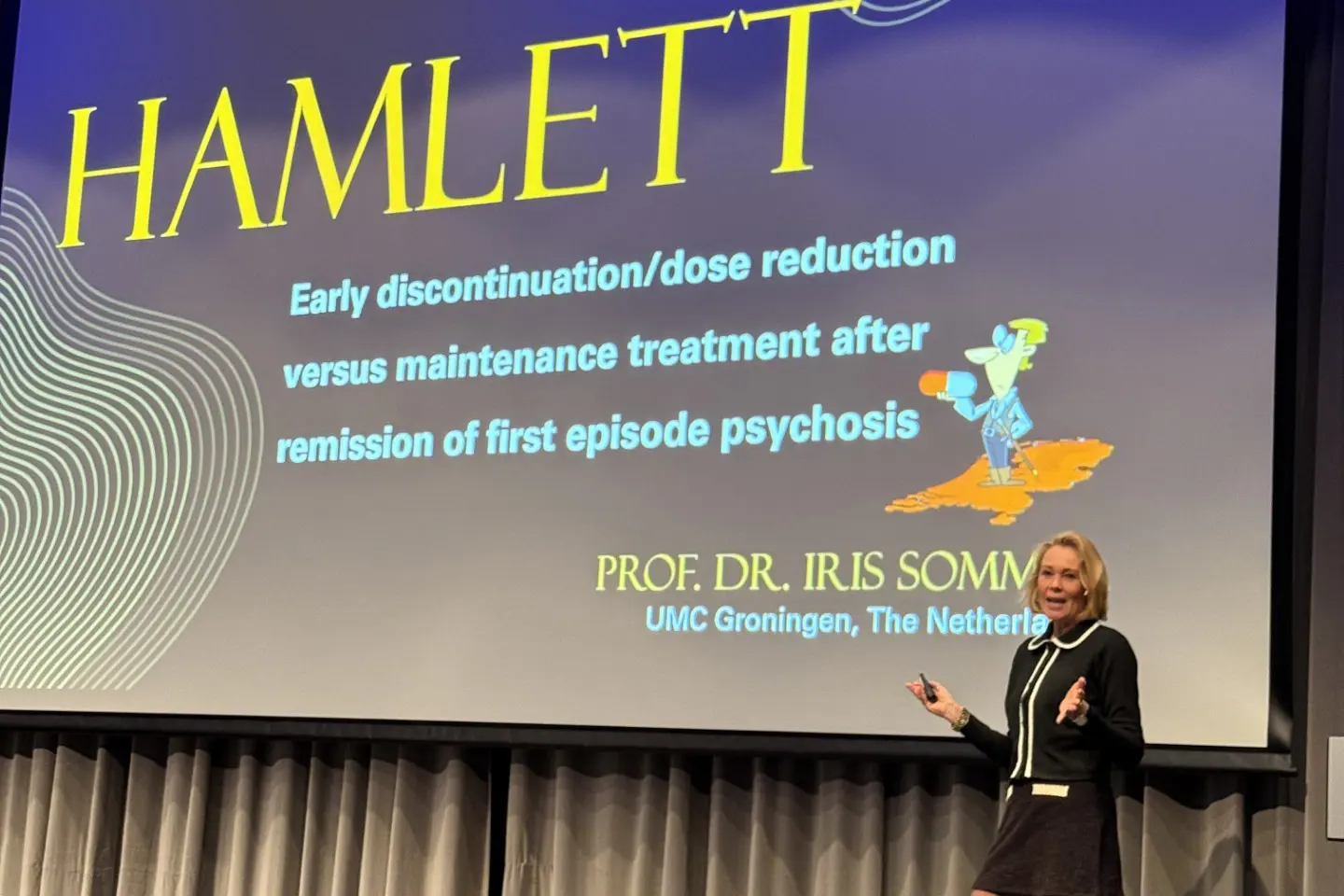
Clinical intervention trials and user experience
The first session had clinical intervention trials and user participation as the main theme. This was highlighted through several professional presentations that addressed various research projects within mental health care.
The STABIL-NOR study was presented by professor Rune A. Kroken. This study investigates the effect of additional treatment with semaglutide in people with schizophrenia spectrum disorders. He explained the background of the study, its objectives and how the treatment is implemented in practice.
The center leader professor Erik Johnsen presented the NORPEPS study, which investigates the use of prednisolone as an additional treatment for early psychosis.He described how the study is organized, which patient groups are included, and which methods are used to measure the effect.
Both presentations were part of a broader discussion about how clinical studies can help develop new forms of treatment, and how user participation can strengthen the relevance and quality of research.
The head of Psychosis Research with Experience (PEK), Anne Blindheim, contributed to both the first and second session, highlighting how user participation in research can go from intention to practice.
– It is crucial that people with personal experience have a real voice in research. This results in both better projects and more relevant results.
Biological phenotyping
The second session had focus on biological phenytyping and related processes. Senior researcher Anja Torsvik presented results from the BeSt InTro study investigating gene expression changes in schizphrenia during antipsychotic treatment. Senior researcher Attila Szabo shed light on inflammatory immune mechanisms in psychotic disorders. Professor Trine Vik Lagerberg and senior researcher Margrethe Collier Høegh presented the PEDAL study focusing on psychoeducation and affective lability, using digital elements.
The second session was recaped by plenum discussion with current scientific and ethical debate.
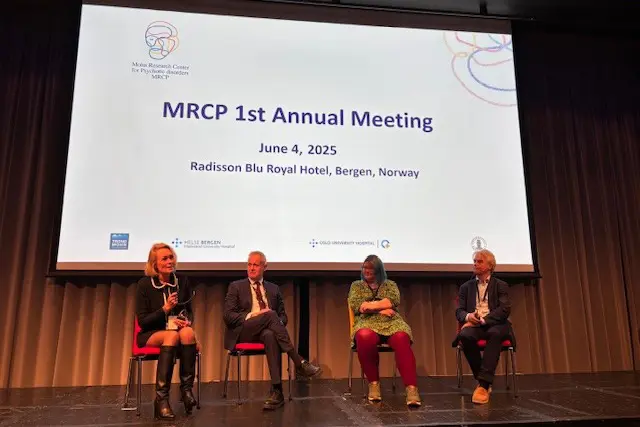
Future Perspectives
The conference's two plenary discussions served as important arenas for joint reflection and dialogue, where participants had the opportunity to explore how
biological findings, clinical experiences and user voices can be seen in context and integrated in a meaningful way.
The aim was to identify how these different perspectives can enrich each other and contribute to the development of more holistic, accurate and
individually tailored treatment options within mental health care.
MRCP's first annual conference marked the start of a new and important tradition of knowledge sharing, inspiration and professional collaboration within psychosis research and treatment.
Researchers, clinicians and collaborators from across the country gathered to share experiences, highlight ongoing projects and discuss the way forward for the field.
The news story was first published on MRCP's Norwegian website by Helena Heimstad, June 6, 2025.
